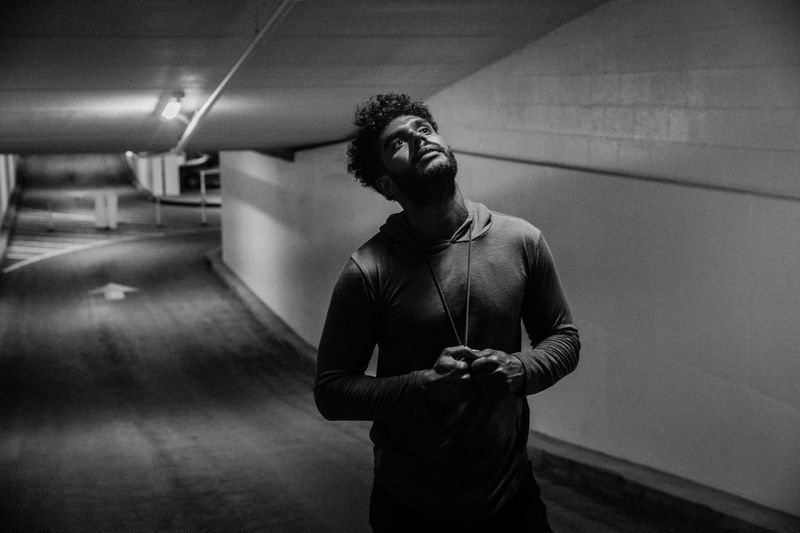Building strong friendships isn’t always easy, and sometimes the problem might be closer than you think. Certain behaviors and attitudes can push people away without you even realizing it.
Understanding these traits is the first step toward building the meaningful connections you deserve.
Excessive Self-Reliance

Being independent is great, but taking it too far can backfire. When you constantly refuse help or never share your struggles, people feel shut out. They want to support you, but your walls are too high.
Real friendship requires letting others in sometimes. Nobody expects you to be weak, but showing you’re human creates connection. Trusting someone with your feelings actually strengthens bonds rather than weakening them.
Try opening up about small things first. Share a worry or ask for advice occasionally. You’ll be surprised how much closer people feel when you let them help you.
Difficulty with Vulnerability

Keeping everything locked inside might feel safe, but it prevents real connection. When you never share what’s truly happening in your life, people can’t know the real you. Surface-level conversations only create surface-level friendships.
Vulnerability isn’t weakness—it’s actually courage. Opening up about fears, dreams, or past experiences helps others relate to you. These honest moments are where genuine friendships form and grow deeper.
Start small by sharing one genuine feeling today. Maybe mention something that made you nervous or excited. Authentic sharing invites others to do the same, creating mutual trust.
Cynicism and Distrust

Always questioning people’s motives creates exhausting relationships. If you constantly assume others have hidden agendas or bad intentions, you’ll push away even the kindest people. Nobody wants to constantly prove they’re trustworthy.
Sure, some caution is healthy, but excessive suspicion becomes a self-fulfilling prophecy. People sense when you don’t trust them and eventually stop trying. Your protective barrier becomes a prison that keeps everyone out.
Give people the benefit of the doubt sometimes. Not everyone is out to hurt you. Practice seeing good intentions first, and you’ll attract more genuine connections into your life.
Low Empathy

Struggling to understand how others feel creates major relationship roadblocks. When friends share problems and you respond with logic instead of compassion, they feel unheard. Sometimes people need understanding, not solutions.
Empathy means putting yourself in someone else’s shoes. It’s recognizing their emotions are valid even if you’d react differently. Without this skill, conversations feel cold and friendships never deepen beyond casual interactions.
Practice active listening next time someone shares feelings. Ask questions like “How did that make you feel?” instead of immediately offering advice. Showing you care about their emotions builds powerful bonds.
Rigid Personality

Insisting everything must be your way exhausts the people around you. Whether it’s always choosing the restaurant, refusing to try new activities, or getting upset when plans change, this inflexibility creates friction. Friendships require give and take.
Being set in your ways might feel comfortable, but relationships need flexibility. Compromise doesn’t mean losing yourself—it means valuing others’ preferences too. Rigid people often end up alone because nobody wants to constantly bend to their demands.
Challenge yourself to say yes to something different this week. Let someone else pick the movie or try their favorite hobby. Flexibility shows respect and opens doors to shared experiences.
Chronic Negativity

Complaining constantly drains everyone’s energy. If every conversation focuses on what’s wrong, people will start avoiding you. Nobody enjoys being around someone who sees only problems and never solutions or silver linings.
Life has challenges, but dwelling on negativity becomes contagious in the worst way. Friends want to lift each other up, not sink together. Your pessimism might feel realistic to you, but it pushes away those seeking balanced, hopeful connections.
Try the three-positive-things rule: for every complaint, share three good things. Notice how conversations become lighter and more enjoyable. Optimism attracts people while negativity repels them.
Poor Communication Skills

Talking over people or never truly listening kills potential friendships fast. Maybe you interrupt constantly, change subjects to yourself, or zone out when others speak. These habits signal that you value your voice more than theirs.
Good communication is a two-way street. Conversations should flow naturally with both people sharing and listening equally. When you monopolize discussions or never ask questions, people feel used rather than valued.
Practice the pause technique: after speaking, count to three before talking again. This gives others space to respond. Ask follow-up questions about what they said. These simple changes transform how people experience conversations with you.
Fear of Rejection

Avoiding social situations because you’re scared of being rejected guarantees loneliness. When you turn down invitations or never reach out first, you miss every opportunity for connection. Fear protects you from rejection but also from friendship.
Everyone faces rejection sometimes—it’s part of being human. But letting this fear control your choices means you’ll never discover who might actually want your friendship. Your assumptions about rejection often hurt you more than actual rejection ever could.
Take one small social risk this week. Text someone first or accept an invitation that scares you. Most people are friendlier than your fears suggest, and taking chances is how relationships begin.

